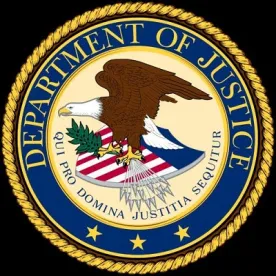On December 4, 2019, the United States Department of Justice (“DOJ”) issued a press release announcing its decision to intervene in a qui tam False Claims Act (“FCA”) case against Navistar Defense LLC. The qui tam lawsuit was filed initially by whistleblower Duquoin Burgess, a former Navistar Defense government contracts manager. The complaint alleges that, in 2007, Navistar Defense provided 4,000 Mine Resistant Ambush Protected vehicles to the United States Marine Corps for use in Iraq, and in 2009 received a contract to modify the suspension systems of those vehicles to deal with the more rocky terrain in Afghanistan.
While negotiating this contract with the Marine Corps, Navistar Defense allegedly “knowingly submitted fraudulent invoices that falsely purported to show prior, comparable commercial sales” at an unreasonably high cost. These false invoices, of sales that had never actually occurred, allowed Navistar Defense to vastly overcharge the Marine Corps for the suspension modifications by hundreds of millions of dollars according to the complaint.
The decision by the DOJ to intervene in this FCA case, which is seeking over a billion dollars in damages, is momentous as it exponentially increases the lawsuit’s chances for a successful outcome. Under the qui tam provisions of the FCA, a private citizen, like Mr. Burgess, in this case, can file a complaint in federal court alleging fraud against the government, which directly or indirectly implicates taxpayer dollars. Once filed, a qui tam FCA complaint remains under seal and out of the public eye. During this time, the DOJ and any affected government agencies work closely with the whistleblower, known as a “relator,” to fully understand the allegations and conduct at issue while also conducting their own factual and legal investigation.
Once this investigation is complete, the DOJ must then decide whether to “intervene” in the case. Intervention means that the government takes an active and leading role in the FCA litigation. If the government declines to intervene, the relator can either litigate the case on their own or drop the False Claims Act lawsuit. In intervened cases, a relator can recover between 15-25% of any damages obtained for the government, and in a non-intervened case, relators can recover between 25-30%.
The DOJ decides whether to intervene before defendants are even aware of the pending FCA complaint against them. It is by far the most crucial act of the entire case. The correlation between the choice to intervene or not, and the outcome of an FCA case is drastic. FCA cases in which the government intervenes are successful in obtaining a recovery around 95% of the time, while that number drops dramatically in non-intervened cases. Among the many reasons for the high rate of success in intervened cases are:
1) intervened cases have the full resources and expertise of the DOJ, rather than just those of a private citizen and their lawyers whose resources most often pale in comparison; and
2) the DOJ only intervenes in cases it deems meritorious and winnable, therefore intervened cases are generally the cases which would most likely win at trial.
With these two factors at play, defendants in an intervened case are far more receptive to settlement discussions prior to any jury decision as they face the full weight of the federal government and credible accusations of fraud.
In the Navistar Defense case, DOJ’s choice to intervene should prove crucial to a recovering potentially hundreds of millions in taxpayer dollars, which Navistar Defense allegedly fraudulently received. In the DOJ press release, Assistant Attorney General Jody Hunt said: “The [DOJ] will hold accountable those contractors who falsify information and thereby cause the military to pay inflated prices.” By intervening, the DOJ significantly increased the chances of accomplishing that goal here and ensuring that Navistar Defense is held accountable for its alleged attempt to fraudulently inflate its prices for providing life-saving equipment to the Marine Corps.




 />i
/>i

